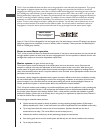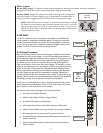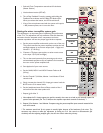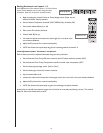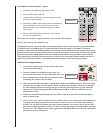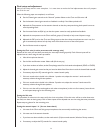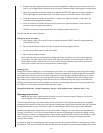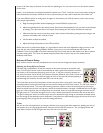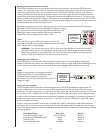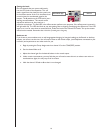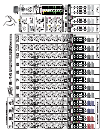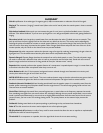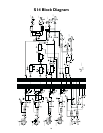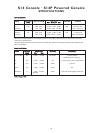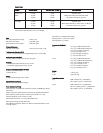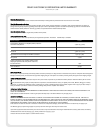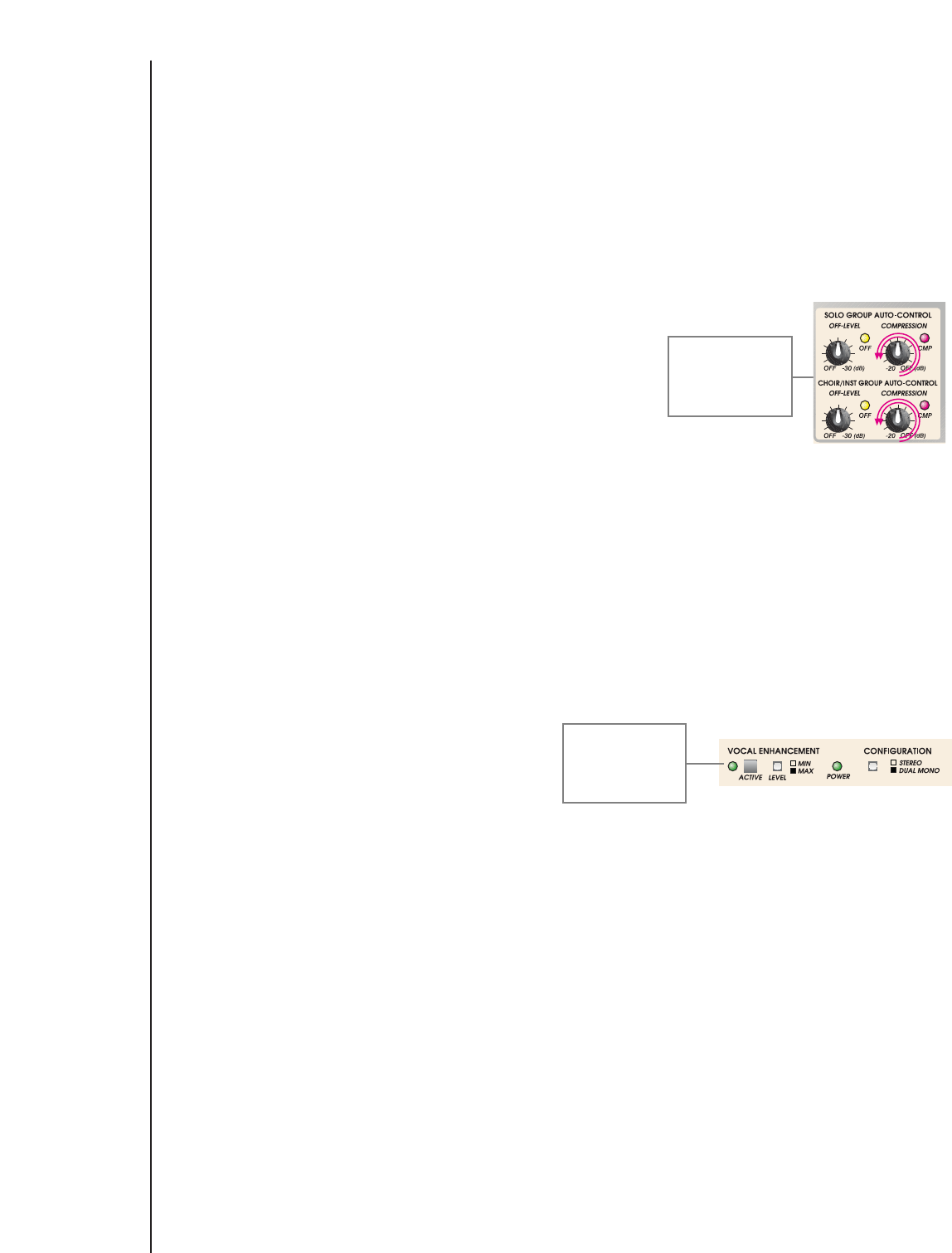
24
Adjusting the Group Compression Controls
The Group Compressors work on the opposite end of the volume spectrum from the Auto-Off (Expansion)
circuitry. The compressor circuit works to control how loud the group signal gets. Like the Off Level control, the
compressor control on the S-14 is also a threshold control. This time the compressor starts to work when the
volume goes above the threshold control set by this control. If the volume goes above the threshold, this circuit
reduces how much louder the signal gets. The signal will still get a little louder but not as much. This can be a big
help with soloists and small groups of singers. If the volume is set for a good balance with the music at low to mid
volume, many times it will get too loud when the vocal volume builds. Setting the threshold so the light comes on at
mid volume levels can do wonders to help the mix.
Because the compressor works on the opposite end of the volume spectrum from the Auto-Off circuitry, the
adjustment of the threshold control is also opposite. Turning the control
fully clockwise sets the threshold very high and essentially turns it off.
Rotating the control counter-clockwise lowers the threshold and
activates the circuit as indicated by the “Active” LED.
To Set:
When the mics of a group (Choir or Solo) are in use, turn the
compressor threshold control counter-clockwise until the active LED
blinks during medium to loud passages.
WARNING: If the threshold is set too low, (LED on most of the time) the fader will need to be increased to
get sufficient volume from the mic. Although this may sound good while they are singing loud, when the volume
drops, the gain goes back up and feedback can result. This is not meant to discourage the use of this processor,
but only to warn of the unexpected result if the threshold is set too low.
Adjusting the Vocal Enhancer
The Vocal Enhancer circuit can add clarity and presence to both spoken word and singing by adding upper
frequency overtones that enhance the understanding of words. There are a great many factors that determine how
this will sound in your system. The vocal enhancer is best set by engaging it and listening to how it sounds.
To Set:
Engage the vocal enhancer by pressing the switch so
that the active LED is lit. Use the behind the panel
MIN/MAX switch to change the amount of
enhancement. You can use a small object like a pencil to
change the switch.
Setting the internal effects.
The S-14 internal effects unit has four reverb settings that have been carefully selected to augment music for
worship. A little bit of reverb mixed with voice can both smooth the sound and help keep an appropriate aural
prospective. (If a person sings with a microphone close to their mouth, that intimate sound may not blend well with
the rest of the music. Adding reverb can help change the perspective.) But you must be careful, adding too much
reverb to music can make the words hard to understand. (Remember, the message is in the words) A good rule of
thumb is that if you notice the reverb, it’s too much. If your room is naturally reverberant to begin with, adding
reverb is probably unnecessary.
Reverb is rarely used on spoken word except as a special effect. Again, reverb tends to make speech harder to
understand. The 4 reverb choices go from fairly short and small to a longer reverb that might be found in a large
room. Choosing the appropriate reverb and adding the appropriate amount will take some experimenting, but here
are some guidelines.
Music Style/Tempo Room Size Reverb
Contemporary/quick tempo Small to Medium Reverb 1
Contemporary/Traditional/Medium Medium Reverb 2
Traditional /Slow Large Reverb 3
Very Slow/Special Vocal Cathedral Reverb 4
Turn Compression
slowly counter-
clockwise until
compression light
blinks
Engage Vocal
Enhancement by
depressing the
switch. LED will
illuminate.



